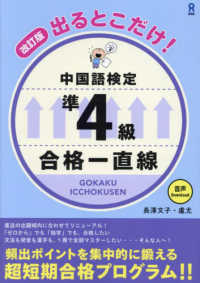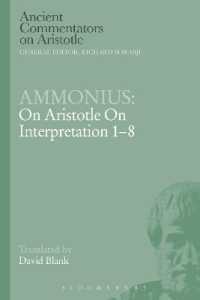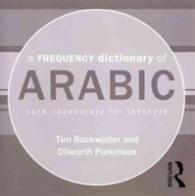- ホーム
- > 洋書
- > 英文書
- > Literary Criticism
Full Description
In Modernism, Narrative and Humanism, Paul Sheehan attempts to redefine modernist narrative for the twenty-first century. For Sheehan modernism presents a major form of critique of the fundamental presumptions of humanism. By pairing key modernist writers with philosophical critics of the humanist tradition, he shows how modernists sought to discover humanism's inhuman potential. He examines the development of narrative during the modernist period and sets it against, among others, the nineteenth-century philosophical writings of Schopenhauer , Darwin and Nietzsche. Focusing on the major novels and poetics of Conrad, Lawrence, Woolf and Beckett, Sheehan investigates these writers' mistrust of humanist orthodoxy and their consequent transformations and disfigurations of narrative order. He reveals the crucial link between the modernist novel's narrative concerns and its philosophical orientation in a book that will be of compelling interest to scholars of modernism and literary theory.
Contents
Preface; Acknowledgements; Introduction: The anthropometric turn; 1. Narrating the animal, amputating the soul; 2. Conrad and technology: homo-ex-machina; 3. The Lawrentian transcendent: after the fall; 4. Woolf's luminance: time out of mid; 5. Doubting Beckett: voices descant, stories still; Conclusion: Humanness unbound; Notes; Bibliography; Index.








